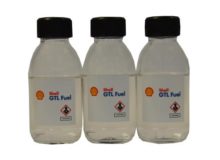GTL Fuel
GTL Fuel is the acronym for Gas-To-Liquid. It describes the synthetic diesel alternative that turns natural gas into a liquid fuel suitable for use in unmodified diesel engines.
Why do I need GTL?
The MCPD has a NOx limit of 190mg/Nm3@15%O2 for all combustion plant/generators in the 1-50MWth range. It’s essential that engines comply.
Broadly speaking, it has the emissions advantages of gas and the convenience of diesel. Depending on the engine type, it can reduce NOx emissions by up to 25% and particulate emissions by up to 38%.
The advantages of using GTL Fuel
GTL can be used in any diesel blend ratio from 0% to 100%. Although it has broadly similar physical characteristics to conventional diesel it is superior in several ways:
- It has a much higher cetane number.
- It has a higher mass calorific value.
- It has lower sulphur levels.
- It has lower levels of aromatics.
- It is almost free from other unsaturated molecules such as olefins (alkenes).
GTL also has a lower density which is advantageous is some ways (e.g. cold temperature performance). These unique properties enable more efficient combustion at a lower temperature. This delivers lower engine emissions.
GTL has advantages that go beyond emissions.
- Storage: GTL can be stored for long periods with a much lower danger of contamination than today’s biodiesel. GTL does not retain dissolved or emulsified water, a major cause of contamination. Reducing the water content limits the growth of microbial contamination (a.k.a. the diesel bug) and restricts the spread of rust in tanks and pipework. This is especially important for emergency generators that operate in standby mode, consuming little of their stored fuel.
- Cold starts: GTL’s properties – including its lower density and low water content – make it better at cold starts. The fuel flows and ignites more easily. This reduces emissions at start-up (the time when diesel engines are at their most polluting), reduces the need for engine heating and improves starting reliability. This is critical for providers to the Fast Frequency Response (FFR) and Short Term Operating Reserve (STOR) frameworks.
- Noise: GTL is not a mix of molecules like conventional diesel. It is a consistent and near pure fuel. This helps engines run more smoothly and quietly. This is an important factor in the siting and approval of urban power generation sites.
- Non-toxic & biodegradable: GTL is non-toxic and biodegradable. Whereas a diesel spill has environmental and health and safety implications, a GTL spill would not.
What do I need to do to convert my diesel engine to GTL Fuel?
It is slightly more expensive than diesel but admirably simple to deploy: stop buying diesel, start buying GTL.
GTL can be packaged, transported and stored using the same equipment, materials, and procedures as conventional diesel. Diesel vehicles can also be run on GTL without engine or exhaust system modifications. GTL can be considered a drop-in replacement for conventional diesel allowing seamless introduction without investment in new engines or refuelling infrastructure.



